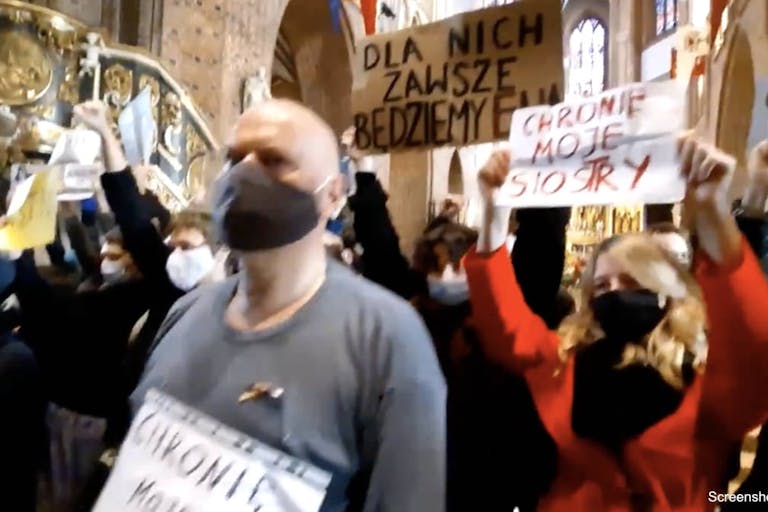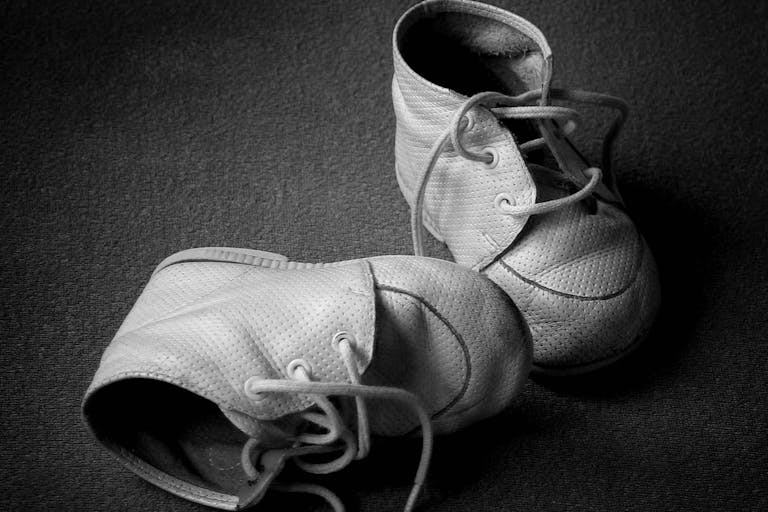Poznań. Kobiety przerwały mszę w katedrze. Interweniowała policja. "Mamy tego dość jako katolicy". Więcej w relacji: poznan.wyborcza.pl/poznan/7,36001… @EpiskopatNews @Abp_Gadecki #aborcja #piekłokobiet

Poland abortion protesters acquitted after interrupting Mass
Poland abortion protesters acquitted after interrupting Mass
A group of 32 pro-abortion protesters in Poland have been acquitted of “maliciously interfering with a religious act” after storming into a cathedral during Mass.
The protest took place on October 25, 2020, after Poland passed legislation protecting preborn children with disabilities from abortion. Before the legislation, virtually 100% of abortions in Poland were committed on preborn children with disabilities. And babies who survived the abortion process were often left to die.
Yet many abortion advocates still spent the autumn of 2020 protesting, including in Poznań Cathedral. Mass was in progress when the protesters began rushing towards the altar, chanting “My Body, My Choice” in Polish. The priest asked them not to interrupt Mass, but this request was ignored as they stood in front of the altar, throwing papers into the air and yelling.
The leaflets they threw into the air promoted abortion, and their signs read “Abortion is not a sin.”
Ultimately, police had to be called in order to get the protest to stop, and prosecutors charged all 32 protesters with “maliciously interfering with the public performance of a religious act jointly and in cooperation,” which carries a sentence of a fine, community service, or up to two years in prison.
According to Notes From Poland, one of the protesters, Arkadiusz K., said he participated in the protest because “[i]t’s not the first time that… the Catholic church is interfering in my life and the life of my friends and colleagues.”
Yet a Poznań district court judge found them all not guilty.
“These were the largest demonstrations in Poland since the political changes in 1989 and, in the opinion of some commentators, the largest street protests in the history of Poland,” Judge Joanna Knobel said, and insinuated that the archbishop of Poznań, Stanisław Gądecki, invited the protests because he expressed support for the pro-life legislation. She further claimed that “the evidence did not show that their intentions were motivated by malice, i.e. the desire to annoy, hurt, or cause unpleasant feelings in another person.”
Knobel seemed to indicate that she has pro-abortion leanings herself, saying the ruling “in effect violated women’s rights,” that the “church hierarchs approved of that ruling,” and that “constitutional separation of state and church is commonly violated.” And yet despite all of that, she said the protesters were not being disrespectful of the church.
“None of the defendants showed contempt for the performance of the religious act itself, nor for the place where this religious act was performed,” she said. “The protesters wanted to show what they think about the disputed issue, to express their position on the judgment of the Constitutional Tribunal, the archbishop’s words and the church’s involvement in politics.”
Prosecutors said they are still considering whether or not to appeal the ruling.
Protests have continued in Poland since then, including occasional violent protests, though pro-lifers vowed to keep fighting. “Despite these attacks, it is our duty to preach the truth,” Fundacja Pro board member Mariusz Dzierżawski said in 2022. “The bandits who support abortion are also ready to attack those who have already been born.”
Live Action News is pro-life news and commentary from a pro-life perspective.
Contact editor@liveaction.org for questions, corrections, or if you are seeking permission to reprint any Live Action News content.
Guest Articles: To submit a guest article to Live Action News, email editor@liveaction.org with an attached Word document of 800-1000 words. Please also attach any photos relevant to your submission if applicable. If your submission is accepted for publication, you will be notified within three weeks. Guest articles are not compensated (see our Open License Agreement). Thank you for your interest in Live Action News!
Read Next

STAGGERING: Abortion killed 10M more humans in 2025 than all other causes
Carole Novielli
·More In Activism

Investigative
New pro-life billboard campaign aims to hold abortion industry accountable
Carole Novielli
·
Activism
2025 Pro-Life Highlights: Celebrating a year of pro-life wins
Cassy Cooke
·
Politics
Planned Parenthood closes Rolla, MO facility, will continue telehealth
Nancy Flanders
·
Media
Live Action's Top 10 Highlights of 2025: Engaging the culture with pro-life truth
Nancy Flanders
·
Activism
Pro-lifer arrested outside California Planned Parenthood plans to continue outreach
Nancy Flanders
·More From Cassy Cooke

International
Hundreds of Russian villages disappear as birth rate plummets
Cassy Cooke
·
Politics
Wyoming Supreme Court says 'ending fetal life' is women's 'healthcare'
Cassy Cooke
·
International
Australian woman donates organs after self-administering deadly suicide drugs
Cassy Cooke
·
International
Nepal gender gap widens as sex-selective abortions continue to flourish
Cassy Cooke
·
Analysis
Great-grandmother charged with attempted murder of disabled teen
Cassy Cooke
·